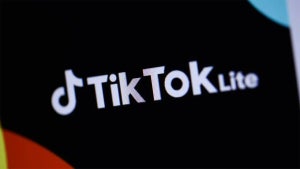 Writer and philosopher Albert Camus once said “The slave begins by demanding justice and ends by wanting to wear a crown.” Ok, this quote might not be entirely appropriate to Apple’s growth into a software giant but the spirit behind it is. Big business can be a dirty game – I’ve got no qualms about that. But Apple have always promoted themselves as innovators par excellence and it irks me somewhat that their attitude towards innovation based on their own products is becoming increasingly anti-competitive.
Writer and philosopher Albert Camus once said “The slave begins by demanding justice and ends by wanting to wear a crown.” Ok, this quote might not be entirely appropriate to Apple’s growth into a software giant but the spirit behind it is. Big business can be a dirty game – I’ve got no qualms about that. But Apple have always promoted themselves as innovators par excellence and it irks me somewhat that their attitude towards innovation based on their own products is becoming increasingly anti-competitive.
Of course, it’s unrealistic to expect a major corporation to welcome applications that could rival their own with open arms. But Apple’s recent decision to reject the Google Voice iPhone app displays an ugly tendency by Apple to block anything that threatens its position. The poor excuse used by Apple was it already offers functionality available on the iPhone. This particular decision now hangs a big question mark over whether Spotify will be accepted by the Apple iPhone store as I questioned last week. A decision to reject that too would symbolize yet another unacceptable blow by Apple to a superbly innovative application that could provide the blueprint for music distribution in the digital age.
To be fair to Apple, the acceptance or rejection of Spotify for iPhone will be a much greater indicator of its true attitude towards innovation than the Google Voice iPhone app. The FCC in America have stepped-in to investigate that particular case because it’s been suggested that it may actually be mobile network AT&T (who distribute iPhones in the USA) that put pressure on Apple to reject it, based on the fact that they obviously don’t want people using their iPhones to make calls and send texts for free. Spotify on the other hand is a direct competitor to Apple’s own iTunes and the decision to reject or accept it will be Apple’s alone.
However, as Jon pointed out earlier this year, censorship of applications is nothing new to Apple. He highlighted the increasing lack of credibility they suffered when they initially rejected an app which linked to “offensive” song lyrics and an e-book reader that, shock-horror, would allow you to read a version of the Karmasutra translated from the 1800’s. Albeit, these were widely interpreted as a knee-jerk reaction to Apple’s decision to withdraw the tasteless Baby Shaker application.
Meanwhile an indication of Apple’s “bullying” business tactics when it comes to hardware were illustrated by its recent decision to silence exploding iPod victims with gag orders. One particular British iPod owner, who heard a hissing sound from his daughter’s increasingly hot iPod, threw it into the garden to see it explode 10 feet into the air. Although he only requested a refund, he was demanded to sign a gagging order that would allow Apple to take legal action against him if he or his family ever revealed the terms of the settlement being offered.
The bigger question here is what gives Apple the right to dictate what can and can’t be installed on an a piece of hardware once someone has shelled-out the cash for it? Not even Microsoft – the embodiment of the monopolistic business practices in software – would even go so far as to dictate what can and can’t be installed on a Windows Mobile device for example. The evidence is mounting – Apple has it’s eye on the crown and it won’t let the spirit of innovation that has brought it so far stand in its way.

